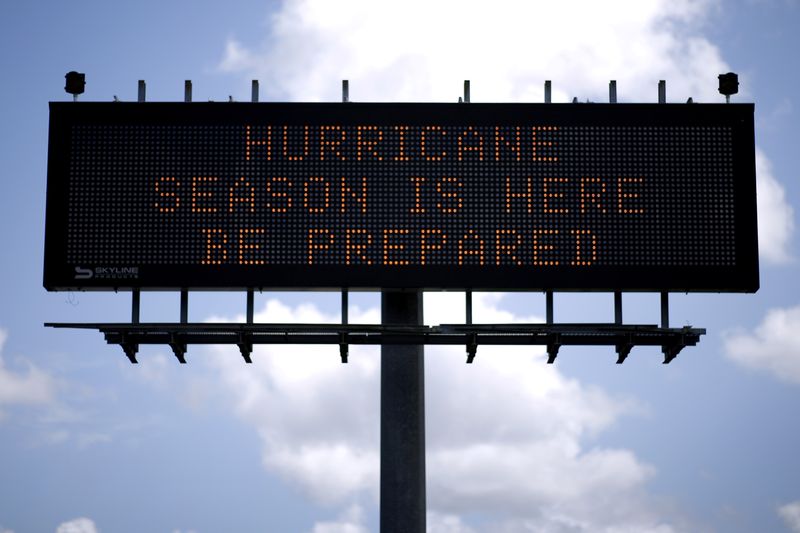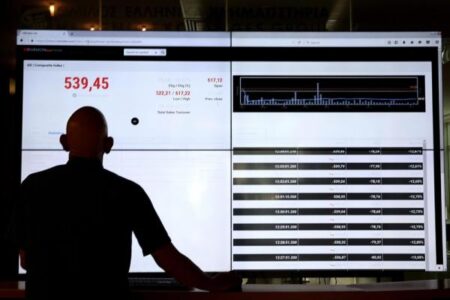Inveting.com — The impact of Hurricane Milton on U.S. stocks and sectors is big, with varying degrees of influence across different industries.
As the hurricane, a powerful Category 4 storm, targets the west coast of Florida, financial analysts are already observing and projecting its repercussions across different sectors.
The Property and Casualty insurance sector is poised to feel the immediate impact of Milton. Analysts from RBC Capital Markets note that Milton could become one of the most expensive storms to hit Florida, generating tens of billions in insured losses.
The high insured property values in heavily populated areas, combined with expected storm surges and inland flooding, contribute to the anticipated financial strain on insurers.
While many insurance companies may avoid catastrophic capital losses due to this being a fourth quarter earnings event, reinsurance and specialty property sectors are expected to face significant exposure.
With three hurricanes making landfall in Florida this season, there could be stabilization or even a reversal in recent softening trends in commercial property and reinsurance pricing.
In the leisure sector, companies such as Planet Fitness (NYSE:) and Life Time (NYSE:) are also exposed. As per Morgan Stanley, Planet Fitness has a concentrated base of corporate locations in Florida, with about 25% of its corporate units in the state.
However, the company operates a franchise model that typically insulates it from transitory events like hurricanes, particularly given the current low season for membership additions.
As of now, the financial implications for Planet Fitness seem limited unless extended closures impact membership churn and new additions.
Medical technology companies are also expected to see a temporary dip in surgical capacity as hospitals in the hurricane’s path prepare for evacuation and operational slowdowns.
BTIG Research estimates that Florida represents around 7.3% of the U.S. surgical capacity, and with around 93.5% of Florida’s population in the path of the storm, surgical volumes could decrease by as much as 6.8% for the quarter if hospitals experience sustained closures.
However, most institutions are expected to resume operations gradually, minimizing long-term effects.
Airlines serving central Florida, especially budget carriers, are experiencing disruptions. As per Jefferies, about 90% of in-bound flights to key Florida airports, such as Tampa and Orlando, have been canceled, with the ultra-low-cost carriers facing the heaviest toll.
Airlines like Allegiant (NASDAQ:), Spirit (NYSE:), and Breeze have seen 41%, 18%, and 44% of their flights canceled, respectively. Allegiant, which has the highest exposure to Florida at 53%, is facing severe disruption, while major carriers like American Airlines (NASDAQ:), Delta (NYSE:), and United (NASDAQ:) have seen about 5% of their flights canceled
Restaurants are particularly vulnerable, especially those with a high percentage of operations in Florida.
According to Barclays, companies like First Watch (NASDAQ:), Bloomin’ Brands (NASDAQ:), Darden Restaurants (NYSE:), Brinker International (NYSE:) and BJ’s Restaurants (NASDAQ:) have their restaurant units in Florida, making them particularly susceptible to traffic declines during the hurricane.
Barclays also notes that while restaurant sales typically experience a rebound following natural disasters, the combined impact of Hurricane Milton and Hurricane Helene earlier in the quarter will likely weigh heavily on fourth quarter earnings for these companies.
Hurricane Milton’s impending landfall is also set to have an impact on Florida’s utilities, particularly companies like TECO, Duke Energy (NYSE:) Florida, and FP&L.
With winds currently at 150 mph and the storm expected to hit the Tampa Bay region, power outages and infrastructure damage are imminent.
As per UBS, past storms like Hurricane Ian in 2022 caused widespread outages affecting 2.7 million customers, with total damages in Florida reaching up to $70 billion.
Given Florida’s strong regulatory environment, however, utility companies are expected to recover prudently incurred storm costs through established recovery mechanisms.
The insurance industry is facing another major test with Hurricane Milton, as the storm approaches Florida’s Gulf Coast, expected to make landfall near Tampa.
The insurance community is recalling lessons from Hurricane Andrew in 1992, one of the most devastating hurricanes in U.S. history.
As per Roth, Hurricane Andrew set a precedent for how reinsurance stocks react to catastrophic events. In 1992, stocks initially dipped but rebounded strongly, particularly for reinsurance companies, as pricing in the sector rose sharply post-event.
As insurers brace for tens of billions in losses, the anticipated rise in reinsurance pricing could provide a much-needed buffer, reinforcing the resilience of the industry.
Across sectors—from airlines to restaurants and utilities—the impact of Hurricane Milton is expected to be wide-reaching but manageable in the long term, due to regulatory frameworks and market adjustments.
Read the full article here















